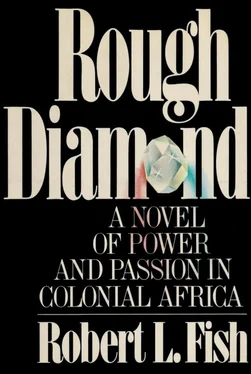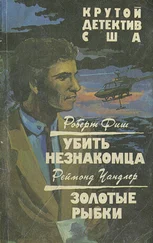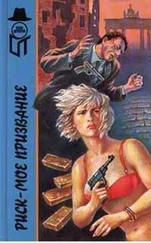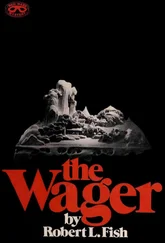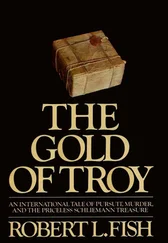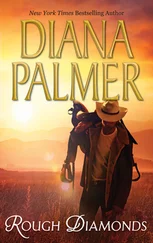He rode at the head of his men with Luckner beside him to point out the trail, and with his bugler and Lieutenant White behind him, and Willoughby halfway down the column of twos, beside the one surgeon they were taking, accompanying the riding wounded. The other surgeons had been left behind, to be rescued when and if possible, together with the many more seriously wounded; a flag with a prominent white cross on it had been placed in a very visible position before the abandoned campsite, and tents, similarly marked, had been set up for a hospital.
The troop was galloping at a pace that Jameson realized could not be maintained for long by the jaded horses, but once they were below Krugersdorp and well on the way to Johannesburg, he felt they could ease their pace, for they would be in territory too close to Johannesburg and the armed men there for the Boers to seriously consider an attack without threat to themselves. They turned from the trail at the shallow pan, galloping into the trail that Luckner pointed out. The two boys, Luckner was pleased to see, were still there and watching them; he felt a touch of pride that his fierce appearance had served to seal their lips where harsher methods might have failed. More than one man in the column stared at the swimming geese with more than a touch of hunger as they swept by them, but then they set their faces resolutely ahead. They had endured too much to be deterred from their goal now. They were on their way to Johannesburg, within hours of their target, and with no bloody Boer standing between them and the town. The scouts — the new scouts — had ridden past the twin kopjes and all the way to the connection with the Jo’burg road and had reported all was quiet.
It was hot, the full heat of a South African summer at high noon, and the heavy uniforms caught the perspiration of the troopers, weighing them down; the dust ate its way through the damp cloth to attack the skin beneath. It coated the dry lips and caked the edges of their eyes; it clogged their noses and abraded their ears; it worked its way into their jodhpurs and chafed the skin of their legs and thighs. The sweat of their horses made their knees slide along the flanks of their mounts, acting almost as spurs to the weary animals; they rode in a swarm of flies. They were an army of last resort, but determined to finish their dash from Pitsani in proper style and complete their mission of saving Johannesburg from the wicked Boer. They were troopers saving the Queen, and if they were saving Cecil Rhodes and his ambitions instead, it was too late to think about that.
They came around a curve in the trail, and there, less than a thousand yards away, as the two boys had promised and as the new scouts had confirmed, they could see the rounded twin kopjes with a scattering of sneezewood trees atop them, rising from the flatness of the plain. Like hairy warts on a woman’s tits, indeed, Luckner thought, grinning, and put his spurs to his mount to keep up with Jameson. The last few hours of the long three days was almost in sight; the clear road to Johannesburg lay just to the left of the pan he knew they would soon sight once they had cleared the narrow valley between the twin hills.
The leaders were well into the small valley, the troopers crowding behind, praying for sight of the final trail, the road they would ride down with pride, their shoulders back despite their hunger and their privation, into Jo’burg to face the cheering of the residents. Each man could taste his meal that evening, piled before him in unlimited quantities and enjoyed as no meal had been enjoyed before; each man disregarded the galling of his gritty uniform against his sweaty legs as he felt the bitter tang of hops in his throat at the thought of the beer he would drink that night; each man could almost feel the soft arms of one of the town’s so-called loose women thrown about him in appreciation of his having protected her virtue. And then, even as they spurred their tired horses to even greater effort, digging spurs into already blood-flecked flanks, each man froze in his saddle as he heard, above the pounding of his horse’s hooves, what he had heard once before on that fateful day.
“Skiet!”
From the rounded, breastlike hills on either side of the narrow trail on which they found themselves, the two kopjes seemed to burst into flame and smoke as the Boer commandos, waiting for them in their ambush, each rose to his knees from behind some rock, or edged his gun from behind some tree, to pour a wave of rifle fire down on the entrapped troopers. Each end of the small valley was suddenly closed as Boers took position there, down in the deep sedge grass, unable to be seen, adding additional firepower into the panicked troopers, their mounts now frenzied beyond endurance or control, churning dust as they wheeled meaninglessly in the confined space, neighing in terror, stumbling over the bodies of fellow animals down with bullet wounds in their bodies, stepping on shot troopers, trying desperately to escape the withering fire. It was chaos. Jameson found himself, almost without volition, turning to his bugler, screaming above the bedlam.
“Give me your undershirt!”
“Sir?”
Jameson pulled his horse next to the puzzled man. He leaned across his pommel, pulling the other man’s outer shirt away, ripping the undershirt from the man’s body, hastily tying it to his saber. He drove his spurs deep into his horse’s flank, forcing the terrified animal up the side of the nearest kopje, waving the saber frantically in the air.
“Staak skiet!”
As quickly as it had come, the firing ceased. The troopers stared about themselves in a daze, unable as yet to comprehend the sudden attack and the equally sudden ending of it, looking down in shock at the bodies of their comrades lying broken beneath the hooves of their mounts, and the unbelievable sight of their captain waving the flag of surrender, unable as yet to understand the totality of the disaster that had struck. The surviving horses jerked their heads against the reins, trembling uncontrollably at the sudden silence, their flanks wet with perspiration, their mouths frothing, their eyes wild.
A figure appeared on a horse atop one of the kopjes; a hand was raised and men appeared on both kopjes, coming from behind the trees and up from the tall grass, waiting silently, looking down with dour expressionless faces at the results of their ambush, their rifles at their sides but ready. Jameson dismounted and slowly climbed the hill, the white flag trailing at his feet as his arm drooped. His mind was a blank, refusing at first to accept the fact that he had actually surrendered; then it tried to take what satisfaction it could from the fact that he had been forced to surrender, had had no choice but to surrender. But it was bitter medicine for the doctor. With each step he took he knew that the revolution had failed because of his failure. He knew that his best friend, Cecil Rhodes, would have been put in an untenable position as Premier of the Cape because of his failure. Bitter medicine indeed…
He came to stand beside the mounted man, looking up in the face of a tall, bearded man dressed in overalls, with farm boots on his feet, and who wore a wide-brimmed, leather trekker’s hat. The man looked as if he had been called from a day’s work on his farm at a moment’s notice, not at all like the neatly uniformed troopers who had left Pitsani in such high spirits. Jameson wet his lips and spoke. It seemed to him as if he were standing to one side, listening to some stranger say the words.
“We are your prisoners, sir. We have left wounded behind. My men have not eaten for over two days…”
The ill-fated Jameson raid was over.
The cells were airless, filthy, and the vermin had free run of the place. There were no cots; the prisoners slept on the floor when they slept at all. A trickle of water running down a gutter in the yard was their only means of washing themselves; the heat of the South African summer was at its unbearable maximum. Three buckets, emptied only every second day, served as their privy. Most of the line troops involved in the ill-fated expedition had been freed, sent back across the border to Bechuanaland with the admonition never to enter the Transvaal again, but the leaders had been held and the members of the Reform Committee had been rounded up and also jailed, held for trial on the charges of treason and the distribution of arms. Jameson himself had been turned over to the Cape authorities to be sent to England for trial by his own government. It was a decision that Paul Kruger regretted as soon as Jameson had crossed the border into the Cape.
Читать дальше
